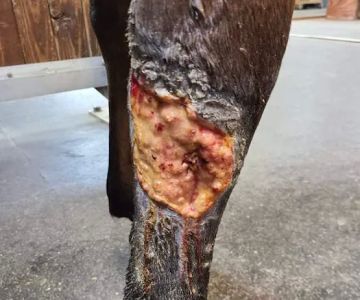What is the Training Required to Become a Veterinarian?
- 1. The Path to Becoming a Veterinarian
- 2. Undergraduate Education and Prerequisites
- 3. Veterinary School: What You Need to Know
- 4. Internship and Residency Requirements for Veterinarians
- 5. Specializations and Advanced Training in Veterinary Medicine
- 6. Licensing and Certification for Veterinarians
Becoming a veterinarian is a rewarding yet challenging journey that requires extensive training, education, and commitment. In the United States, veterinarians play a crucial role in animal health, public health, and research. As an aspiring veterinarian, it’s important to understand what kind of training is required to enter this highly respected profession. In this article, I will explore the steps involved in becoming a veterinarian, including the necessary education, training, and specialization opportunities that can shape your career.
1. The Path to Becoming a Veterinarian
The journey to becoming a veterinarian begins with understanding the necessary education and practical experience. Veterinarians are highly skilled professionals who provide medical care to animals, whether they are pets, livestock, or wildlife. To become a licensed veterinarian, you need to complete a series of educational steps, including obtaining a bachelor’s degree, completing veterinary school, and passing licensing exams.
Throughout my own exploration of the veterinary profession, I learned that becoming a vet requires not only academic excellence but also a passion for animals and a strong commitment to patient care. The field offers a wide range of specialties, from general animal care to complex surgeries, making it an exciting career for those who want to make a difference in the lives of animals and their owners.
2. Undergraduate Education and Prerequisites
Before applying to veterinary school, aspiring veterinarians must complete an undergraduate degree. This is a critical step in the training process, as veterinary schools typically require specific coursework and qualifications. While there is no specific major required for veterinary school, most future veterinarians pursue degrees in biology, animal science, or chemistry.
As an undergraduate, you will need to take courses in biology, chemistry, physics, and other science-related subjects to build a strong foundation. The goal is to gain a deep understanding of animal biology and the scientific principles that will later be applied in veterinary medicine. Additionally, many veterinary schools have prerequisites such as a certain GPA, experience working with animals, and letters of recommendation. It's also worth noting that veterinary schools are highly competitive, so it’s important to excel academically and gain relevant hands-on experience in animal care during your undergraduate years.
3. Veterinary School: What You Need to Know
After completing the necessary undergraduate education, aspiring veterinarians must attend veterinary school to earn a Doctor of Veterinary Medicine (DVM) degree. Veterinary school typically takes four years to complete and involves a combination of classroom learning and clinical training. During the first few years, students study core subjects such as animal anatomy, physiology, pharmacology, and pathology, which provide the foundational knowledge necessary to practice veterinary medicine.
In the later years of veterinary school, students gain hands-on experience through clinical rotations, where they interact with real patients under the supervision of licensed veterinarians. These rotations provide students with the opportunity to apply what they have learned in a real-world setting and to develop practical skills. Additionally, students are exposed to various areas of veterinary medicine, including surgery, internal medicine, and preventive care.
In my own research into the field, I found that veterinary school is rigorous, requiring both mental and emotional endurance. Veterinary students must develop strong diagnostic and communication skills to succeed, as well as the ability to work under pressure, especially in emergency situations.
4. Internship and Residency Requirements for Veterinarians
Once you graduate from veterinary school, the next step in your training depends on your career goals. Many veterinarians choose to complete an internship or residency to specialize in a particular area of veterinary medicine. For example, if you want to become a veterinary surgeon, you will need to complete a surgical internship and possibly a residency program to gain the necessary experience and expertise.
Internships are typically one-year programs where new graduates work under the supervision of experienced veterinarians in a clinical setting. Residencies are more specialized, longer programs that allow veterinarians to gain in-depth knowledge and training in specific fields like dermatology, cardiology, or anesthesiology. These advanced training opportunities are essential for those who wish to become specialists in their field and can lead to higher salaries and greater career opportunities.
Through my own observations and from talking with professionals in the field, I’ve learned that these advanced training programs are competitive and require a significant commitment. However, they can be incredibly rewarding for those passionate about working in specialized areas of veterinary medicine.
5. Specializations and Advanced Training in Veterinary Medicine
Veterinary medicine offers numerous specialties that allow veterinarians to focus on particular areas of animal health. Some common specialties include:
- Surgery: Veterinary surgeons perform surgeries on animals, ranging from routine procedures like spaying and neutering to complex orthopedic surgeries.
- Dermatology: Veterinary dermatologists specialize in the diagnosis and treatment of skin disorders in animals, such as allergies, infections, and parasites.
- Oncology: Veterinarians specializing in oncology treat animals diagnosed with cancer, providing both medical and surgical treatment options.
- Internal Medicine: Veterinarians in internal medicine focus on diagnosing and treating diseases affecting internal organs, such as the heart, lungs, and kidneys.
Specializing in a particular field allows veterinarians to develop deep expertise, which can enhance their career prospects and provide the opportunity to work in high-demand areas of animal care. However, specialization requires additional training and often comes with a higher financial and time commitment.
6. Licensing and Certification for Veterinarians
Once you have completed veterinary school and any required internships or residencies, the next step is obtaining licensure to practice as a veterinarian. In the U.S., this typically involves passing the North American Veterinary Licensing Examination (NAVLE), which tests a veterinarian’s knowledge in areas like pharmacology, surgery, and pathology.
In addition to the NAVLE, veterinarians must meet state-specific licensing requirements. Some states may require additional exams, continuing education courses, or certifications for certain specializations. It's important for aspiring veterinarians to research the specific licensing requirements for the state in which they plan to practice.
After becoming licensed, veterinarians must maintain their certification through ongoing education to keep up with the latest advancements in animal health. Many professional organizations, such as the American Veterinary Medical Association (AVMA), offer resources and continuing education programs to help veterinarians stay current with the latest trends in veterinary care.











